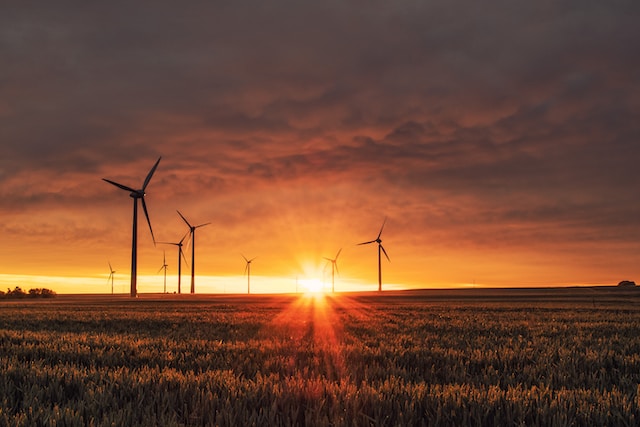Last updated on December 13th, 2023 at 12:19 pm
Heating your home can be expensive if your boiler isn’t efficient.
While the cost of heating is unavoidable, there are ways to cut down on your heating bills without sacrificing warmth. One way to do this is to invest in an energy-efficient boiler.
Simply upgrading from an outdated boiler to a modern, energy-efficient one can mean substantial savings, potentially saving you hundreds of pounds annually.
In this guide, we’ll explore the key factors that determine boiler efficiency and offer insights into maintaining an efficient boiler for the long term.
Understanding Boiler Efficiency
Boilers lose heat primarily through hot gases, but modern technology has led to the creation of condensing boilers. These boilers are designed to recover more heat from fuel gases and use them to heat water, making them significantly more efficient.
In fact, condensing boilers boast an impressive 25% higher efficiency compared to their non-condensing counterparts. This efficiency gain has meant homes all over the UK have adopted condensing boilers in recent years. If you purchased a boiler after 2007, chances are you already have a condensing boiler.
Types of Boilers and Efficiency
Let’s explore three common boiler types and their efficiencies:
- Combi Boiler: This compact boiler heats water on demand and doesn’t require storage tanks, making it ideal for smaller homes. Since it doesn’t preheat and store hot water, it eliminates energy wastage, making it more efficient than traditional boilers.
- Heat-only Boiler: Also known as a regular or traditional boiler, this system includes hot water and cold water storage tanks. It’s better suited for larger houses with multiple bathrooms.
- System Boiler: Similar to the heat-only boiler, the system boiler lacks a cold water storage tank. It can provide hot water to multiple bathrooms simultaneously and is well-suited for larger homes.
Combi boilers stand out as the most energy-efficient option due to their on-demand water heating and compact size, which makes them particularly suitable for small apartments.
Fuel Type and Efficiency
The type of fuel your boiler uses significantly impacts its efficiency and operating cost.
Condensing gas boilers are generally the most cost-efficient option, with natural gas being the cheapest fuel compared to alternatives like electricity, oil, coal, and LPG.
Assessing Your Boiler’s Efficiency
The efficiency of boilers tends to decline over time due to factors such as rust, debris build-up, and wear and tear.
Regular maintenance and servicing are crucial to ensuring your boiler remains efficient. Most boilers maintain around 80% efficiency for the first 15 to 20 years after installation, but efficiency can drop to 60% or less after 25 years.
This can lead to higher fuel bills, so make sure you maintain and replace your boiler when necessary.
If you’re unsure, read our guide around how you know it’s time to upgrade your boiler.
Choosing the Right Boiler Size
Boiler size is another key factor influencing efficiency. Larger boilers produce more heat output, meaning they consume more energy.
Your boiler size should match your home’s heating needs. While larger homes may require greater heat output, using an excessively large boiler for a smaller space results in wasted energy, higher emissions, and increased bills.
Decoding Boiler Efficiency Ratings
When evaluating boiler efficiency, consider the following rating systems:
- ErP Energy Rating: Modern boilers receive ErP ratings (A+++ to F) to indicate their efficiency. Combi boilers receive separate ratings for space heating and water heating, helping you assess their performance.
- SEDBUK Efficiency Rating: The Seasonal Efficiency of Domestic Boilers in the UK (SEDBUK) provides an SAP score, assessing both room and hot water heating efficiency. This rating will help when comparing different boiler models.
Maximising Boiler Efficiency
To ensure your boiler operates smoothly and efficiently, follow these tips:
- Keep it clean: Regular cleaning prevents debris build-up.
- Minimise air infiltration: Prevent unwanted air from entering your system, ensuring efficient combustion.
- Routine servicing: Regular maintenance prevents issues and maintains efficiency.
- Early issue detection: Address signs of problems quickly to prevent further efficiency loss.
- Utilise hot condensate: Maximise returns from hot condensate to improve overall efficiency.
Conclusion
Energy-efficient boilers not only reduce your heating costs but also contribute to a greener environment.
Aging boilers experience diminishing efficiency, leading to higher energy consumption.
By prioritising regular maintenance and considering a boiler upgrade, you can ensure your home stays warm without draining your wallet or harming the planet.
If you’d like to assess your boiler’s efficiency, Warmable can help you organise a boiler service on demand.


